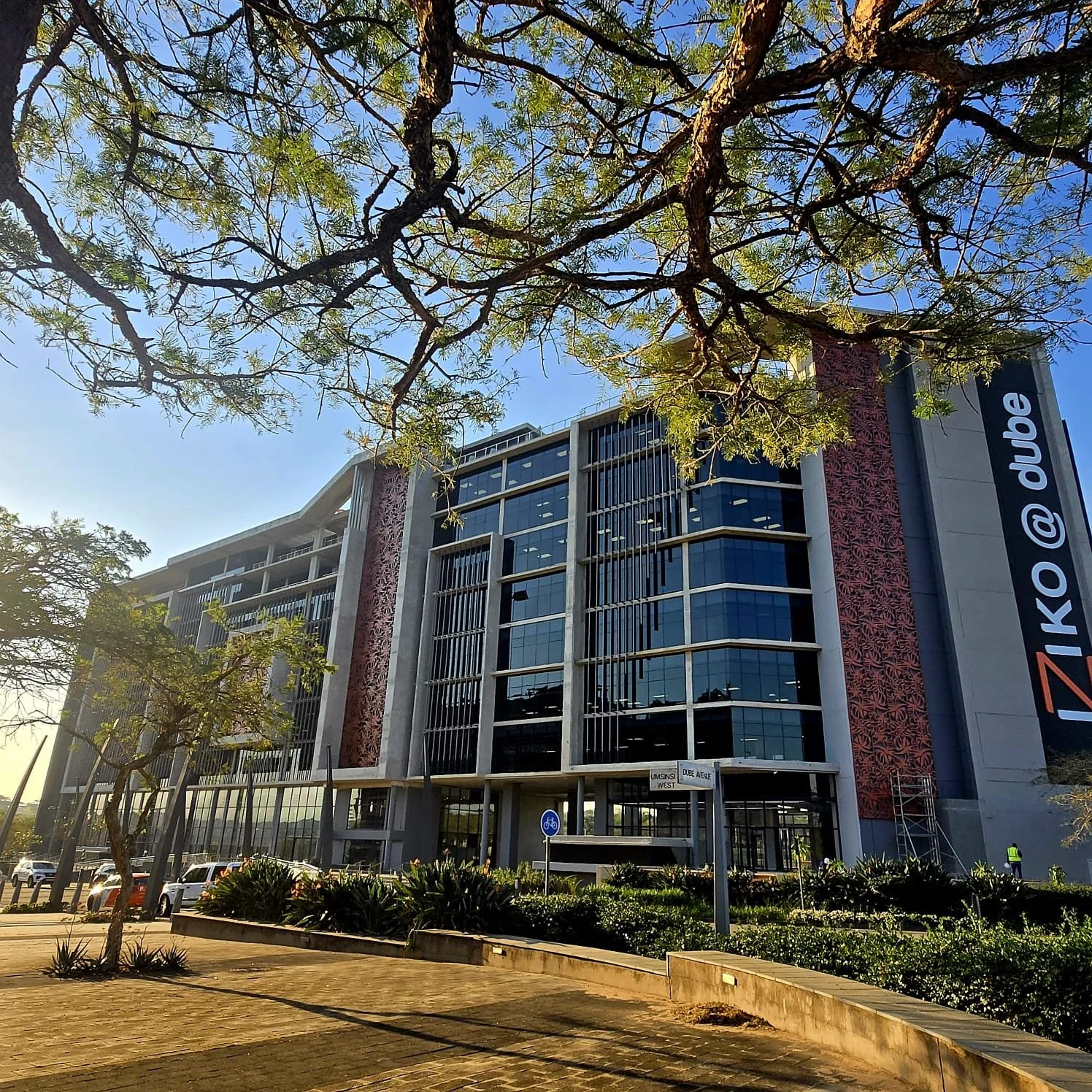Dube City – Block D Top Structure
Client: Dube TradePort Corporation (DTPC)
Location: La Mercy, KwaZulu-Natal , Commissioned: 2025
Scope: Green Star Preparedness Strategy
Dube TradePort Corporation (DTPC) is a provincially State-owned company that strives to act as a catalyst for both regional and global trade. DTPC is uniquely recognised as the only facility in Africa, comprising an international airport, cargo terminal, warehousing, offices, and agricultural area. It is strategically located approximately 30 km north of Durban, positioned between Richards Bay and Durban Harbour, the two major seaports within South Africa with road and rail networks that connect DTPC to the rest of the continent.
In 2014, DTPC was declared a Special Economic Zone (SEZ), meaning that the precinct has become a fully-fledged purpose-built industrial estate, linked to an international air transport (the King Shaka International Airport), which contains one or more multiple Customs Controlled Areas (CCAs) tailored for the manufacturing and storage of goods to boost beneficiation, investment, economic growth, and, most importantly, the development of skills and employment.
Sustainability Scope & Strategy
The Block D Commercial Office Development (Iziko@Dube) forms part of the Support Precinct 1 scheme and accommodates a blend of retail, hotel, office, parkade, and public space functions.
GreenBDG was appointed to lead the green building strategy for Block D, positioning it as a flagship for climate-resilient infrastructure and sustainable placemaking. sustainability team was tasked with:
Aligning the project with Green Star SA rating requirements
Embedding green building design attributes from concept to operation
Evaluating the business impact of sustainability policies (e.g. energy, water, materials)
Advising on a long-term green strategy for the precinct’s infrastructure lifecycle
Key green building design principles included:
Passive design for thermal comfort and daylighting
Heat-Recovery systems that have minimal global warming impact
Water-wise landscaping and greywater reuse
Low-impact materials and local sourcing
Integrated mobility and pedestrian-first planning
Biodiversity restoration and ecological buffers
📈 Strategic Impact
Serves as a regional benchmark for sustainable mixed-use development
Supports Dube TradePort’s net-zero and circular economy goals
Forms the test bed for future green infrastructure across Dube City
Enhances investor confidence through Green Star-aligned performance metrics
In essence, Dube City offers a compelling green-manufacturing platform enriched by energy efficiency infrastructure, logistics connectivity, export potential, and a young skilled workforce. Layering Artificial Intelligence (AI) into this ecosystem—mindfully integrated with ESG and circular economy principles—can significantly boost operational efficiency, reduce emissions, and open new value chains in regional and global markets leading up to 2050.


